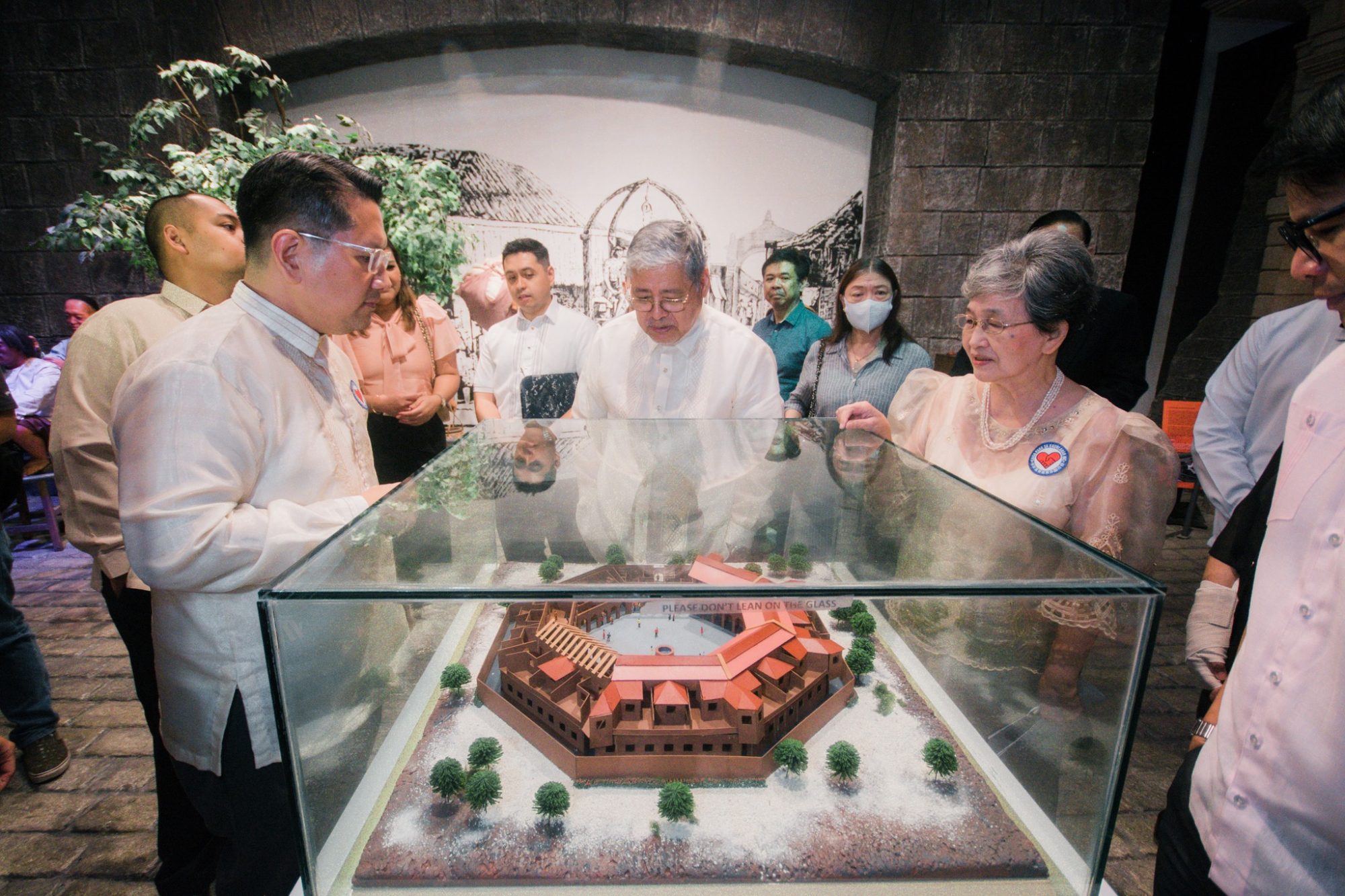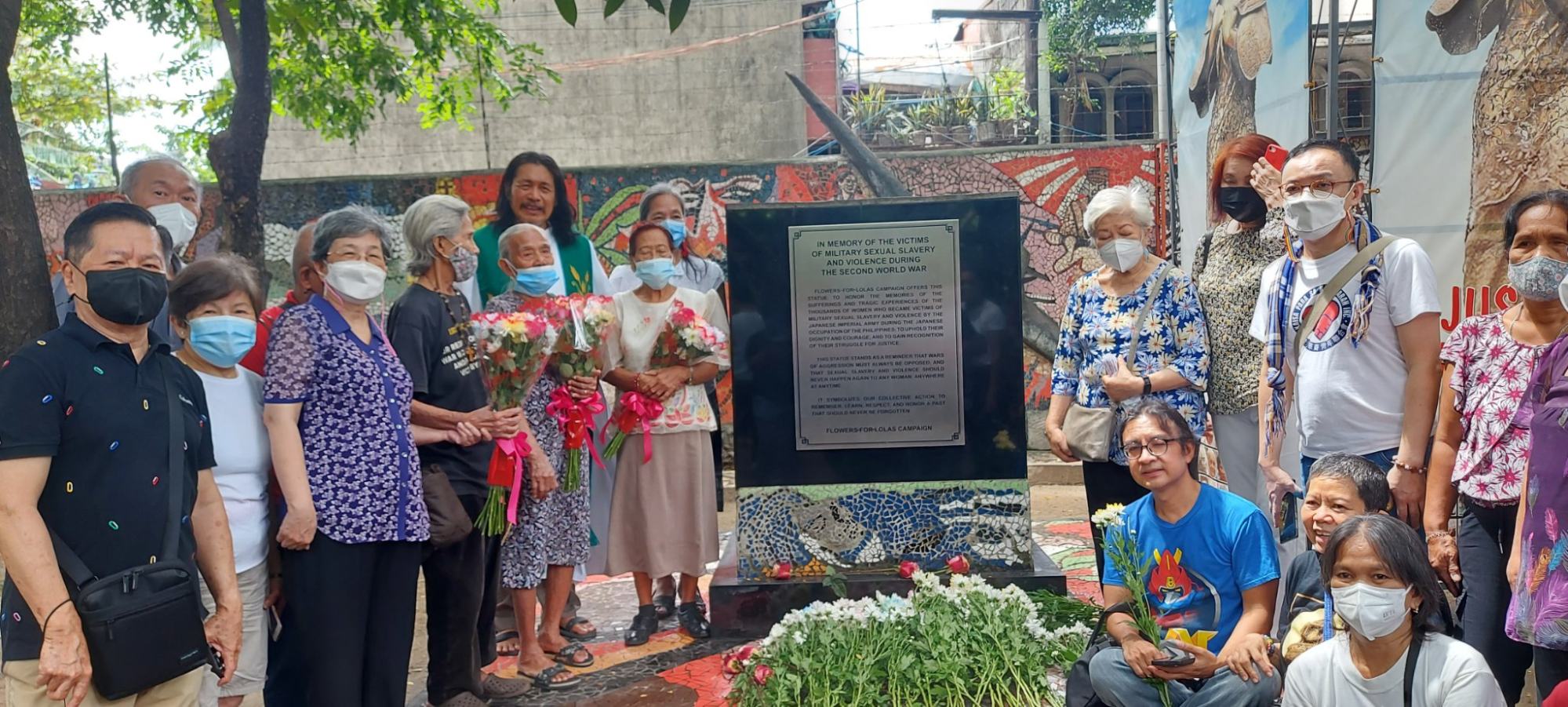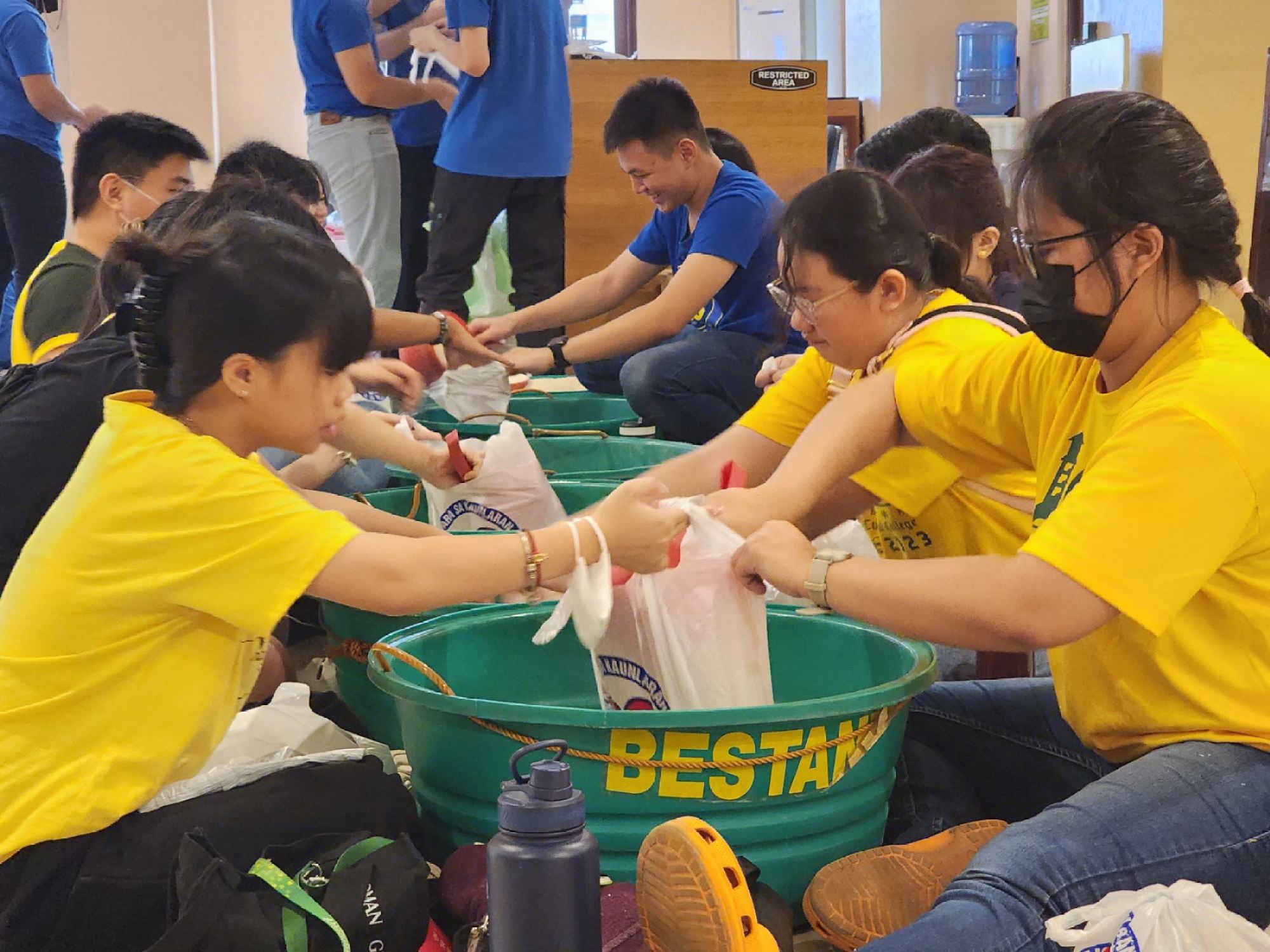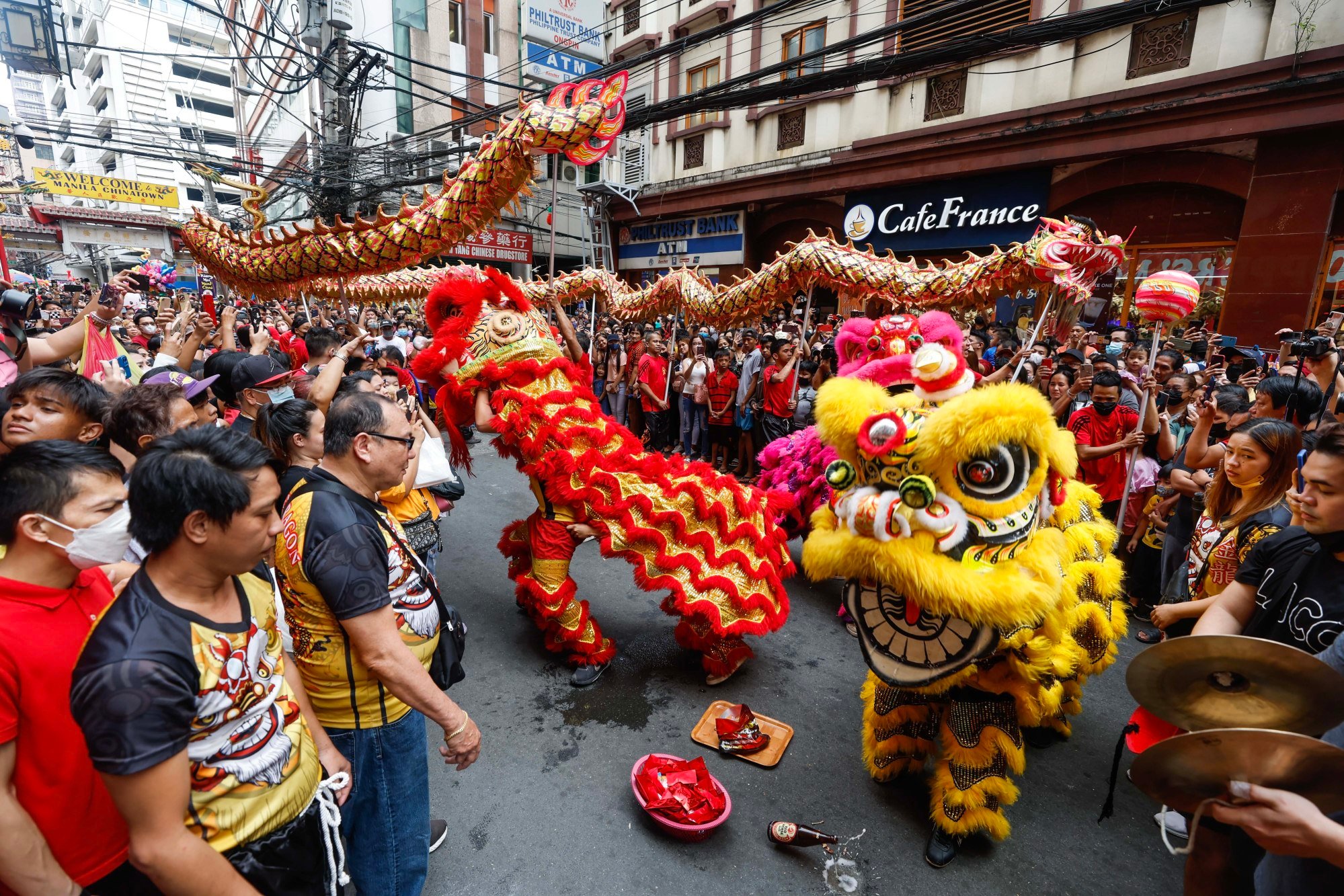Chinese-Filipinos fear fallout from Sinophobia, ‘the other’ label
[ad_1]
About 93 per cent of Tsinoys trace their roots to China’s Fujian province, which their ancestors left for the Philippines in various waves. The long ethnic Chinese presence in the country predates even the 300-year Spanish colonial period, leading to vestiges of Chinese influence finding their way into mainstream Filipino culture, from food to shared customs.
“There was even a Chinese general in the Philippine revolution,” said Caroline Hau, a professor at Kyoto University’s Centre for Southeast Asian Studies.
A recent survey of 1,765 Filipinos across urban and rural areas by independent polling firm WRNumero found a high level of distrust against Chinese nationals compared with citizens of other countries, with 58.3 per cent saying they distrusted Chinese people and 13.4 per cent saying they highly distrusted them.
Filipinos have expressed disdain for Chinese nationals on social media, accusing them of a tendency to disregard rules and regulations.
A Filipino immigration officer won praise for a video showing her yelling at a woman who was among 37 Chinese nationals apprehended for engaging in illegal retail activities during a raid in Paranaque City on June 4.
“This is the Philippines, this is not China. Now you have to go with us and follow our rules,” the officer was heard shouting in the video after the woman questioned the rationale for the raid.
“Being racist against a mainlander is morally and objectively correct,” one Reddit comment read.

Chinese or Chinese-Filipino?
Observers say Tsinoys fear that public anger over issues involving China may reinforce negative perceptions towards people of Chinese ethnicity more broadly, including those who have lived in the Philippines for many years.
“While criticism of policies of the mainland Chinese government and the illegal activities of certain Chinese groups and individuals is certainly warranted – and many Tsinoys I know are themselves quite critical of these policies and activities – Tsinoys worry nonetheless that the anger sparked by these issues may have a spillover effect,” Hau said.
She warned that the current climate reinforced racist stereotypes about Chinese-Filipinos as “economically dominant, politically disloyal and culturally alien”, as well as being viewed as “a corrupting influence on Philippine society and politics”.
Tiu has had a traumatic experience arising from such perceptions himself. While on assignment taking photos of a Pogo facility in Pasay in 2019, he was apprehended by Filipino security guards who confiscated his camera and dragged him to an across the street where he said he was beaten and interrogated.
“He [a guard] pointed a gun at the back of where I was sitting and was trying to make me admit that I was an Indonesian or Hong Kong spy to spy on their ‘good players’. I don’t know what that meant,” he said.
The guards also searched his belongings and deleted all his photos, Tiu said. He was eventually released after the head of the security agency managed to verify his identity.
Tiu said he was conscious of being singled out on the grounds of his ethnicity when he started working as a photojournalist.
“The masses generalise Tsinoys and mainland Chinese as one. Especially if someone achieves something [notable] and their surname is Chua, Tan, or Lim, some would react online, ‘Chekwa yan e’ [He’s chekwa],” he said, referring to derogatory slang for Chinese people.
“Chinese-Filipinos consider themselves different and often distinguish themselves from the mainland Chinese, not least in terms of their loyalty to their motherland, the Philippines,” Hau said. “Lazy generalisation fails to distinguish between Chinese-Filipinos and foreign Chinese nationals and, above all, attribute to entire communities the failings and wrongdoings of a few individuals or groups.”

The ‘other’ Filipinos
Despite the prominence of Tsinoys in Philippine politics and business, many other Filipinos still perceive them as a distinct group, rather than fully integrated members of society – a perception that can hinder their integration, even though many identify as Filipino, according to Richard T. Chu, a history professor at the University of Massachusetts, Amherst in the United States.
Analysts and civic leaders attribute this mentality to the legacy of colonial-era policies. During the Spanish colonial period, Chinese settlers were forced to live confined within designated enclaves known as “parian”, and were treated as a separate social class apart from the general Filipino population.
During the American occupation, the US’ Chinese Exclusion Act was applied to the Philippines, barring entry to Chinese nationals except for merchants and their sons. In 1975, the Philippines formally recognised the People’s Republic of China and changed its nationality laws so ethnic Chinese settled in the Philippines could apply for citizenship.
The long history of Chinese settlement in the Philippines has shaped the cultural practices and linguistic traditions of Tsinoys distinct from the mainland and other parts of the Chinese diaspora. Most Chinese-Filipinos grow up speaking Hokkien rather than Mandarin at home, though younger generations typically have greater fluency in English or Tagalog than any Chinese dialect.
“The ease with which we observe Catholic or Protestant – or Muslim for those in the south – traditions shows a great level of comfort with local customs and traditions precisely because we were born into this society,” said Reynard Hing, president of the Chinese-Filipino advocacy group Kaisa Para Sa Kaunlaran.
Stereotypes about the community endured despite the active participation of Chinese-Filipinos in society, he said.
“Filipino mainstream society has always been taught that the Chinese, no matter what, are the ‘other’,” Hing said.

Chu said this perception was evident on social media. He gave the example of Tiffany Uy, a Chinese-Filipino who graduated from the University of the Philippines Diliman with the highest grade-point average in history.
“Some Filipinos questioned her identity as a ‘Filipino,’” he said.
This distinction is further compounded by persistent societal stereotypes such as the perception that Tsinoys are more financially successful or affluent.
Hing said he often encountered comments like “They’re not real Filipinos” made in response to articles that highlight the dominance of Chinese-Filipino businessmen among the top performers in the Philippine stock market and economy.

A question of allegiance
The persistent lack of understanding among many Filipinos about their fellow citizens has fuelled speculation about Tsinoys’ allegiances amid escalating tensions between the Philippines and China.
Economist Solita Monsod ruffled feathers when she wrote about the distrust of China and Chinese-Filipinos in a column for the Philippine Daily Inquirer.
“Actually, I have often observed, reader, that a Chinese-Filipino will never ever state unequivocally that he/she is a Filipino first, and a Chinese second,” she wrote.
“Combine this with the fact that most of our billionaires are Chinese-Filipinos, and that Chinese-Filipinos seem to be culturally averse to marrying Filipino women, and that they are some of this country’s most hated employers. It then becomes easier to understand the distrust factor.”
F. Sionil Jose, the late Filipino writer, also expressed doubts about the loyalty of Chinese-Filipinos, alleging that they sided with China to protect their economic interests. “The priority, therefore, is for us now to see to it that the economic power of these ethnic Chinese, whose loyalty to the Philippines is in doubt, should be emasculated. The silence of our Filipino Chinese on this crucial issue is deafening,” he once wrote.

Academic Chu argued that such discussions about the escalating US-China rivalry that had ensnared the Philippines should focus on “challenging hegemonic attempts” by either side for their own “selfish agenda”.
“This is not to say that there is no need to debunk the mistaken notion that Tsinoys are pro-China, but the discussion should not end in a zero-sum game of declaring undivided loyalty to one particular nation, but instead to what is just, true, and peaceful,” he said.
Hing said that Chinese-Filipinos had increased their political visibility, actively took part in civil society such as through disaster relief efforts and spoken about issues of public interest.
“So with all the examples of Tsinoys being quite comfortable being Filipinos and participating in socio-economic programmes wholeheartedly, the question is, when will their fellow Filipinos think these people with monosyllabic surnames aren’t the other?”
For Tiu, there is a desperate need to deepen public awareness that Chinese-Filipinos are not foreigners, but rather an integral part of the Philippines’ “unique DNA”.
“We need … to reinforce who Chinese-Filipinos are, especially at these times when our sovereignty is questioned and disputed.”
[ad_2]
Read More:Chinese-Filipinos fear fallout from Sinophobia, ‘the other’ label

Comments are closed.